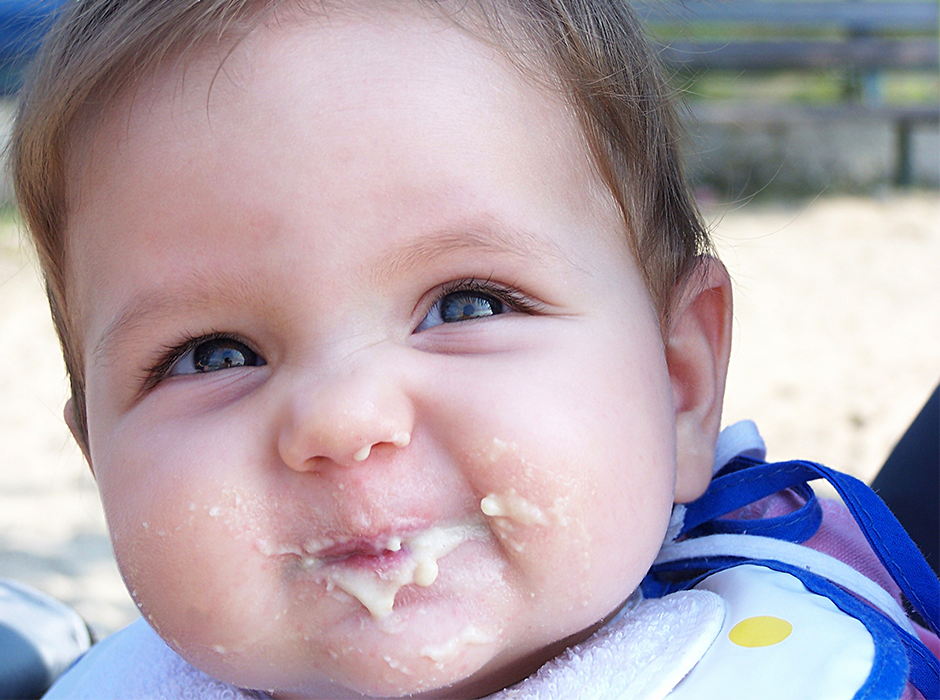
University of Otago research shows food pouches contribute little to infants' nutrient intake from solid foods, but are safe to be used as part of feeding solids to babies.
Food pouches are a popular, but contentious, food choice for babies, but new University of Otago research shows they may have little impact on infant nutrient intakes from solid foods.
Published in The American Journal of Clinical Nutrition, researchers aimed to determine what nutrients babies were getting from food pouches specifically, and commercial baby foods such as food in jars, baby rice, and baby snacks generally, as part of feeding solids.
Co-author Ioanna Katiforis, a PhD candidate in the Department of Human Nutrition, says the commercial baby food market has grown rapidly in the past decade, in New Zealand and globally.
“Although pouches are convenient for whānau feeding babies, concerns have been raised about the nutritional implications of their use,” she says.
Data from 645 babies aged 6 to 12 months in the First Foods New Zealand and Young Foods New Zealand studies show nearly half (45.3 per cent) ate a pouch at least once in two days.
Results are mixed, showing pouches give babies only small amounts of energy and iron but are important sources of carbohydrates, fibre and vitamins A, C and B-6.
“We found that pouches only provided one-quarter of the energy babies consumed from their solid foods and 4 per cent of the iron required for this age,” Miss Katiforis says.
“Nearly half, or almost two teaspoons, of the total sugars from baby foods came from pouches, reflecting the extent of fruit puree – which contains natural sugars – in these products.
“However, pouches were contributing very little of the added sugars that babies got from solids, and that was almost entirely from dairy-based pouches, such as custards.”
Miss Katiforis says the finding that non-dairy pouches are important sources of carbohydrates, fibre and some vitamins is positive.
“Findings that pouch foods were not key contributors to added sugars intakes from solid foods were reassuring because added sugars are not recommended for children under 12 months of age.
“However, the findings were less reassuring for iron, which is an important nutrient for babies to receive from six months of age for normal growth and development.”
While the long-term health outcomes of using pouches are not yet known, the study findings suggest whānau can safely use them as part of feeding solids to babies, but they should not be relied upon as a source of iron.
“It is also important that infants are exposed to a variety of different-tasting foods - including savoury flavours, not just sweet fruit-based pouches - and a range of textures as they learn how to eat the same foods as the rest of the family,” Miss Katiforis says.